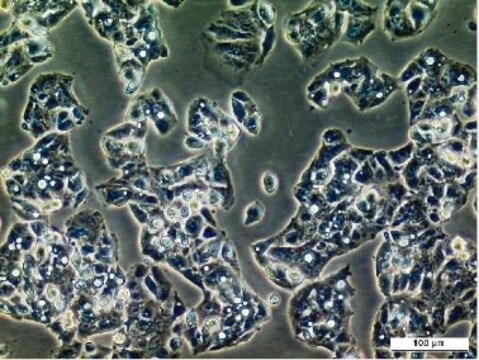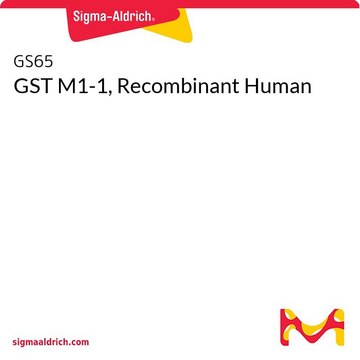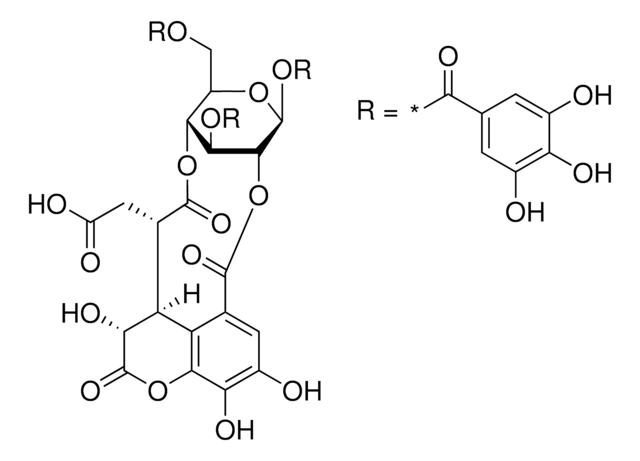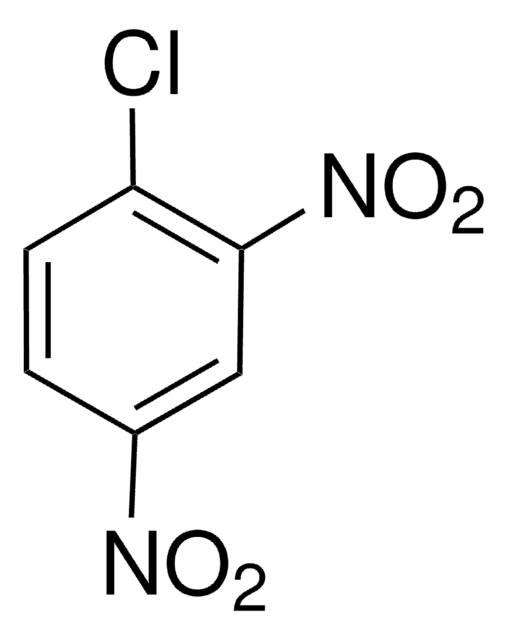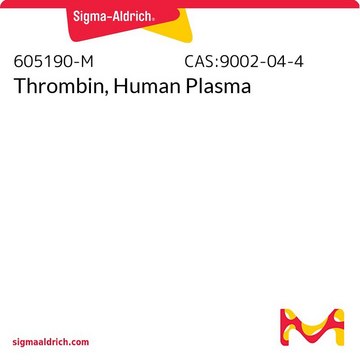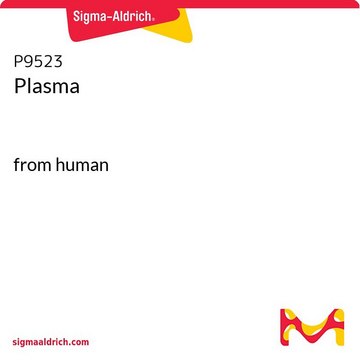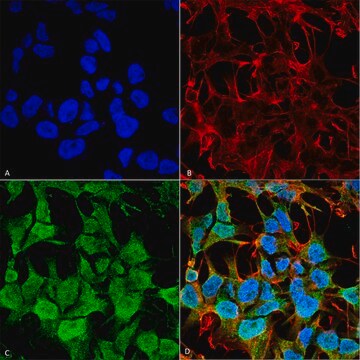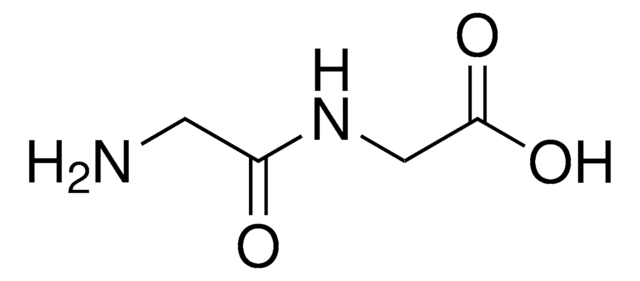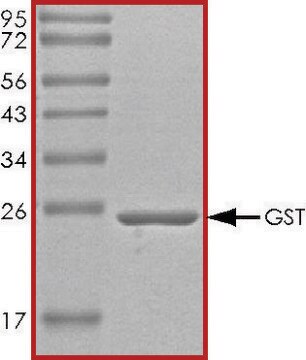GS60
GST A1-1, Recombinant Human
Synonyme(s) :
GST-epsilon, GST2, GSTA1-1, GTH1, glutathione S-transferase alpha 1
About This Item
Produits recommandés
Source biologique
human
Niveau de qualité
Produit recombinant
expressed in E. coli
Essai
>95% (SDS-PAGE)
Forme
frozen liquid
Activité spécifique
21.04 units/mg protein
Poids mol.
23 kDa
Concentration
2.0 mg/mL
Température de stockage
−70°C
Informations sur le gène
human ... GSTA1(2938)
Description générale
Actions biochimiques/physiologiques
Stockage et stabilité
Code de la classe de stockage
10 - Combustible liquids
Classe de danger pour l'eau (WGK)
WGK 1
Point d'éclair (°F)
Not applicable
Point d'éclair (°C)
Not applicable
Faites votre choix parmi les versions les plus récentes :
Certificats d'analyse (COA)
Vous ne trouvez pas la bonne version ?
Si vous avez besoin d'une version particulière, vous pouvez rechercher un certificat spécifique par le numéro de lot.
Déjà en possession de ce produit ?
Retrouvez la documentation relative aux produits que vous avez récemment achetés dans la Bibliothèque de documents.
Les clients ont également consulté
Notre équipe de scientifiques dispose d'une expérience dans tous les secteurs de la recherche, notamment en sciences de la vie, science des matériaux, synthèse chimique, chromatographie, analyse et dans de nombreux autres domaines..
Contacter notre Service technique